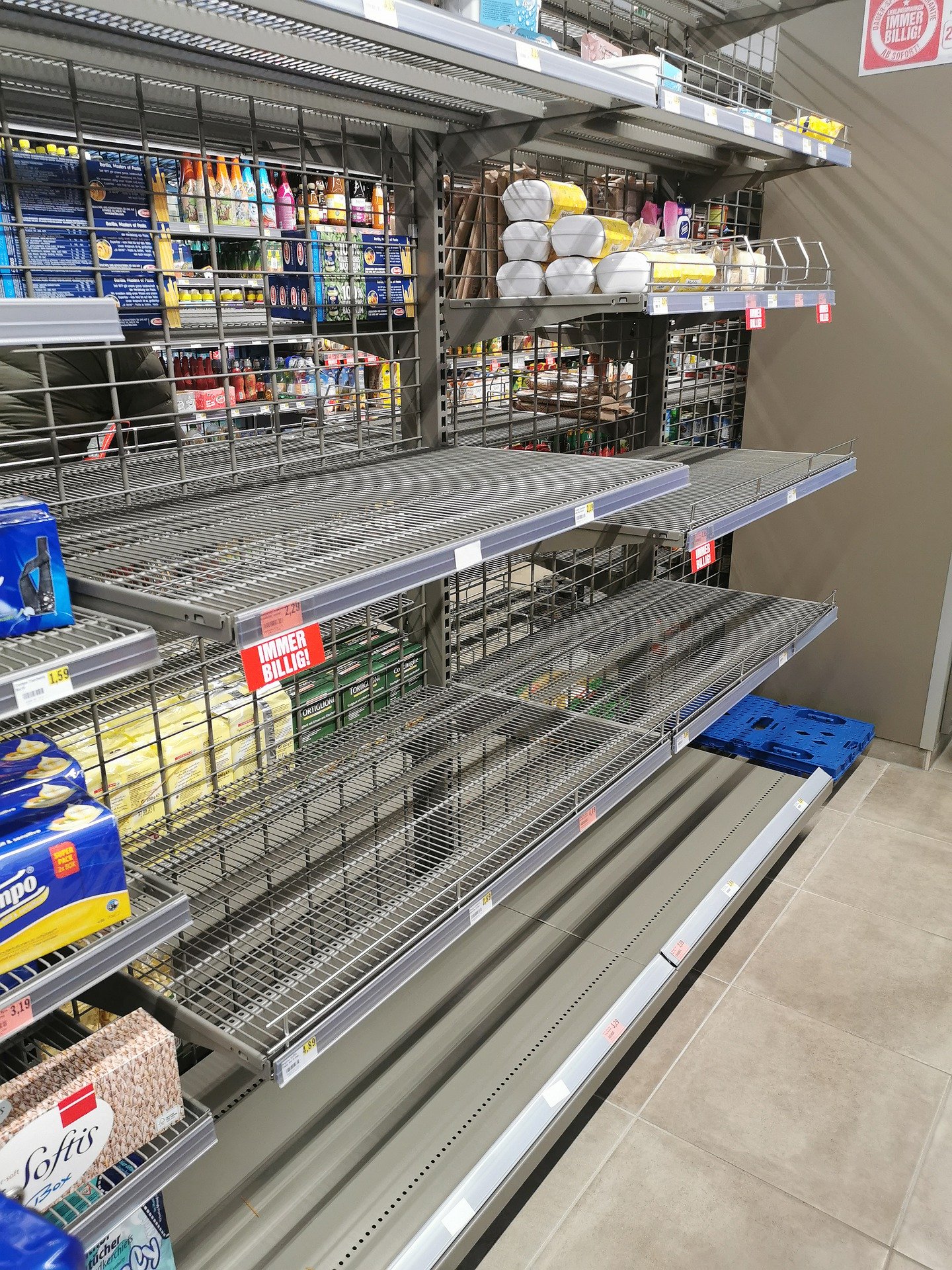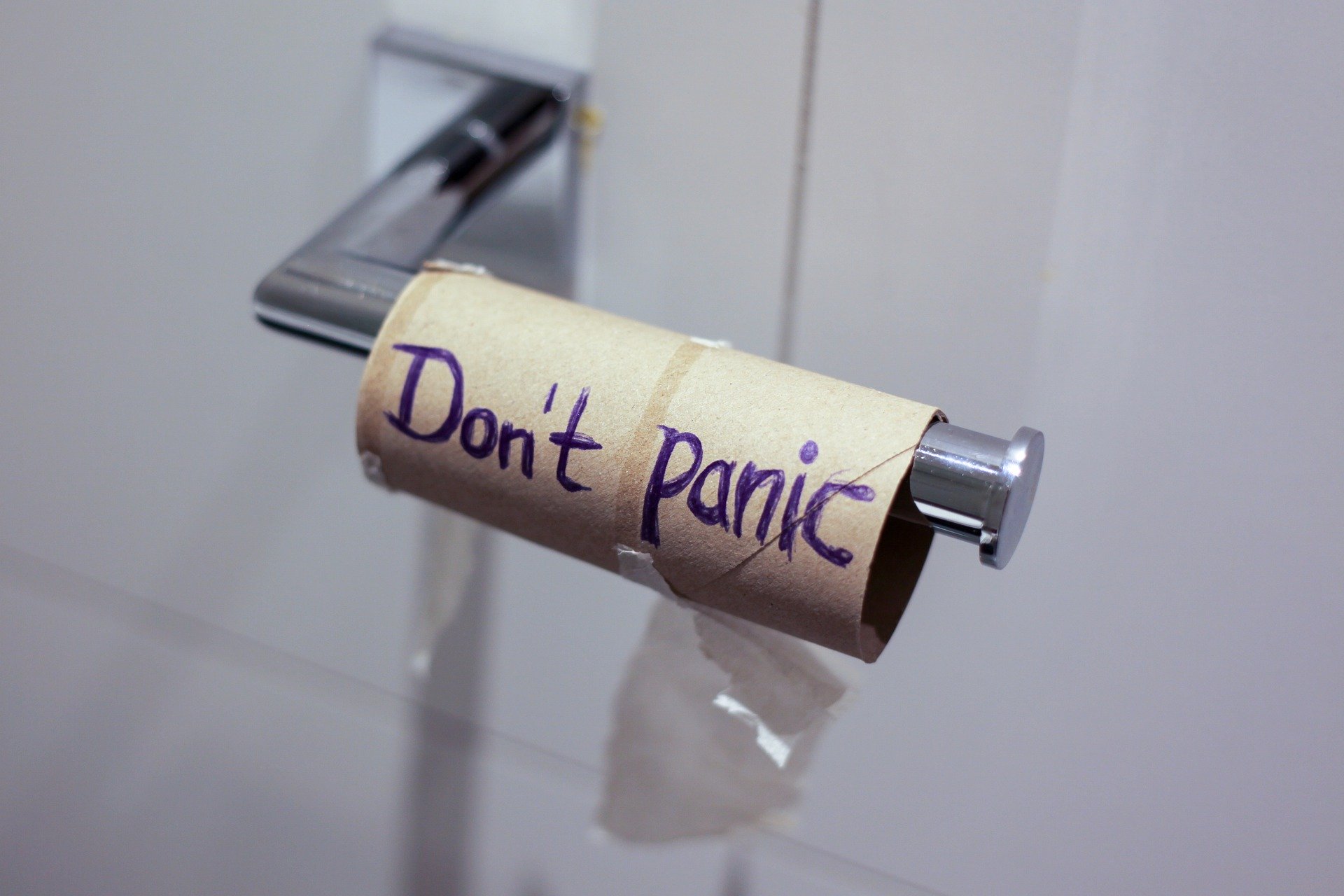Humanism Always Survives Posted by Flying Oyster on Mar 19, 2020 in Korean Language, Uncategorized, Vocabulary
A couple of months ago, I honestly thought my parents and friends went overboard with COVID-19 whenever I talked to them over the phone. I didn’t feel 임박한 위기 (im-bahk-hahn-wee-gi: an imminent danger) back then.
They, of course, 자가 격리 (jah-gah-kyuk-ree: self-quarantine) themselves at home as most Koreans did. Some people started 사재기 (sah-jae-gi: panic buying, stocking up food). My friends were grumbling about daily paperwork at work to report COVID-19 증상 (jeung-sahng: symptoms), but they seemed to understand the importance of it. The city of Daegu has been completely 봉쇄 (bong-shae: is being shut down). Some people in Daegu 항의 (hang-ee: outcry) over what seems like rigorous protection 조치 (joh- chi: measures). Sooner or later, most cities in Korea also became 유령 도시 (yoo-rying-doh-si: ghost town). Schools were closed. Most shops and restaurants were closed. Working at home was strongly recommended, if possible. Shelves at grocery stores were bare. My sister once described the whole situation as an invisible war.
A couple months later, the invisible war seems to be happening here where I live. The changes around me seem to be more drastic and significant than what my family and friends had described how and what they had to go through in Korea.
I have been noticing empty isles of 화장지 (hwa-jahng-ji: toilet papers) at stores for weeks, which I still haven’t l figured out why. When I went to a local grocery store a couple days ago, a tub of wipes for shopping carts was completely empty, which was not 일상적인 (il-sang-juk-in: ordinary) . I saw a few people with facial masks on, some even wearing 일회용 장갑 (il-hoe-yong-jang-gaap: disposable gloves). The shelves of 냉동식품 (nang-dong-sik-poom: frozen food), 통조림 식품 (tong-joh-rim-sik-poom: canned food), 건조식품 (gun-joh-sik-poom: dried food) and daily items were empty. The scene started giving me eerie feelings. I stopped looking at my grocery shopping list and looked around. I started noticing there were more numbers of people than I usually see at that time of the day. I wanted to believe that it was a coincidence that some people were pushing their carts with piles of food. Each grocery store worker gave me conflicting answers when I asked them when certain items would be restocked. I came home with several missing grocery items that I usually get from stores. I saw big signs saying “Free Food for Kids” on school fences on the way back home. I get ever-changing emails from work regarding how to react to COVID-19 as a healthcare provider. That evening, I read an article that the state governor 명령하다 (myung-ryung-hah-dah: mandating) the closing of restaurants and bars as of 3/16/2020. This outbreak apparently affects far more people than we had anticipated. Unfortunately, more and more people are fighting this nasty virus globally.
I am not trying to scare you. I am a little puzzled how things quickly change here. It is grim, but I choose to keep myself calm because I know the first thing and the most important thing is not to panic. I also choose to remain positive, since this is something that is out of my control. I pay more attention to positive news that shows people being kind to others. People are becoming more creative and 이타적인 (ee-tah-juk-in: altruistic) in order to overcome the outbreak. It was heartfelt news to me that Italians sang at their balconies to console each other while they are self-quarantined themselves. I see more social media messages that people offer help to those who are more susceptible to the virus, such as delivering groceries. This kind of news warms my heart and gives me hope that we can survive through this chaos, but only if we keep our 인도적인 (in-doh-juk-in: humanitarian) touches.
Let’s do our best to prevent spreading the virus and stay healthy. It is a tough time for everyone, but let’s consider this situation as a chance to spend quality time with your loved ones at home. Let’s be thankful for what we have now. Most of all, let’s not lose hope that we all can have our normal healthy life back soon.

Build vocabulary, practice pronunciation, and more with Transparent Language Online. Available anytime, anywhere, on any device.






